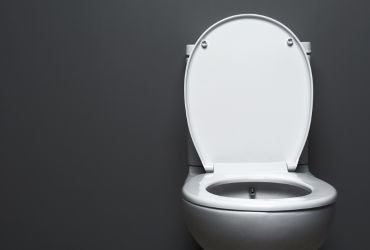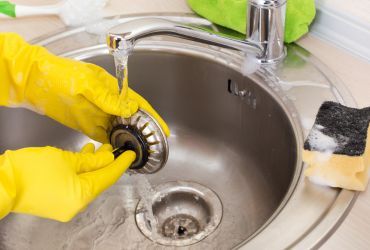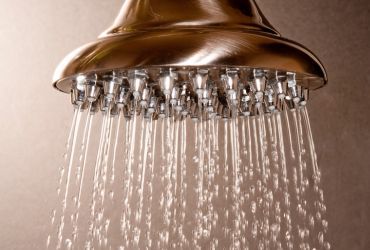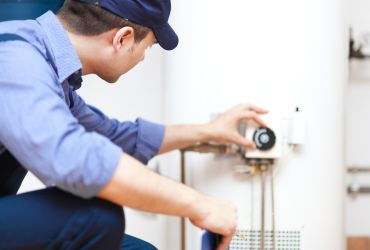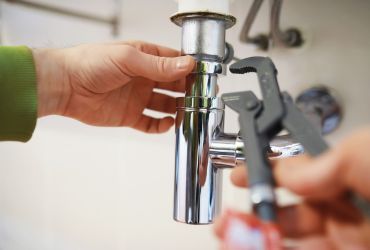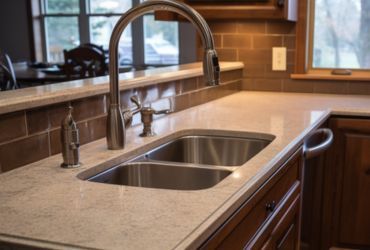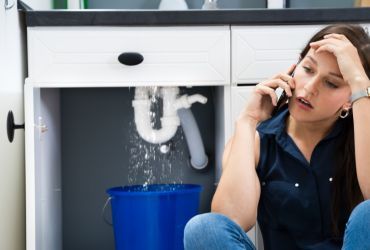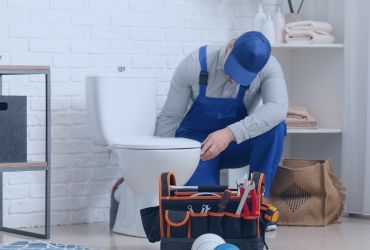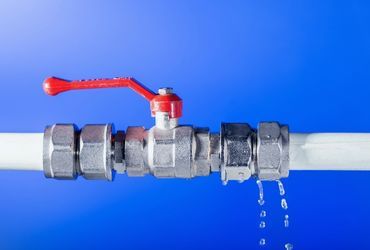Is It Time To Replace Your Toilet?
If you’re in the market for a new toilet, it’s important to understand the pertinent topics. This article will discuss signs that indicates your toilet needs replacement, the benefits of replacing your toilet, factors to consider when replacing your toilet, the toilet installation process, and choosing a professional plumber to install a new toilet.
Signs Your Toilet Needs Replacement
Signs that Your Toilet Needs Replacement can range from small issues to major problems, indicating it may be time to replace your toilet. However, it is important to identify these issues early on to prevent larger and more expensive issues in the future.
For instance, one of the most common signs that a toilet needs to be replaced is if it is constantly running or flushing. This is especially concerning if the running continues after you have tried to fix the problem. Moreover, any cracks or chips in the porcelain can cause malfunctions or cause a leak. Additionally, if your toilet is becoming increasingly more difficult to flush, or clogs frequently, it is time to start thinking about replacing the toilet.
In contrast, if you hear unusual and loud noises while flushing the toilet, sometimes called “singing toilets”, this may be a sign of an internal blockage which could cause major problems if left unchecked. Similarly, if there is staining on the bowl, or the toilets becoming increasingly discolored, it is often medically advisable to replace it as this is a sign of the accumulation of bacteria over a long period of time.
Furthermore, there are occasions when a toilet is just simply old and outdated, and this can also be an indication that you should replace it. As a result, it’s important to be aware of the age of your toilets, especially if you have never replaced them. If you notice any of these symptoms, it is advisable to contact a local plumber or contact your Homeowners Association to discuss the best options to remedy the situation. Consequently, remembering to keep an eye out for the signs listed above can save you headaches and money further along the line.
Benefits of Replacing Your Toilet
Replacing your toilet can have numerous benefits, not only for your health but also for your finances. Older toilets tend to be much less efficient than the modern versions, meaning that you could experience significant savings by taking the plunge and purchasing a new one.
However, modern toilets also come in a variety of designs, with some of the more contemporary models featuring a dual-flush, sleek designs, and a range of water pressure choices. By investing in one of these, you could enhance the aesthetic of your bathroom as well as reduce your water bills.
Moreover, in the long term, replacing your toilet could help to reduce the amount of water that you use. This is due to efficient models being designed with powerful flushes and smaller tanks, which can reduce your water usage by over 50%.
On the other hand, a new toilet can also help to greatly lower your risk of exposure to harmful bacteria, since modern models are designed with antibacterial coatings that restrict the growth of bacteria. Additionally, a new toilet is likely to be more bearable and comfortable to use, due to its better molding and contouring compared to an older model.
In addition, newer toilets are also designed with less chemical-reliant dyes, making it less likely to have a negative impact on the environment. As a result, you can be sure that your choice in toilet doesn’t contribute to water or soil contamination.
Provided that you invest in a reliable brand, a new and improved toilet should also be more durable than its predecessor, helping to provide you with long-term peace of mind. Furthermore, in the chance that something does go wrong, modern toilets also tend to be easier to repair due to their simple design.
Consequently, upgrading your toilet can be a great choice if you’re looking for a way to reduce your water bills and enhance the appearance of your bathroom. Even if it may require a higher initial outlay, you’re likely to reap the rewards of this investment in the long term.
Factors to Consider When Replacing Your Toilet
When it comes to replacing a toilet, there are numerous factors to consider in order to make the right choice for your home. Firstly, the size, dimensions, location, and type of toilet many come into play. Measure the current toilet fixture and the surrounding space to determine if there is room for a larger fixture, or if a writing model is best. Moreover, consider the type of installation that is need. Toilets can be either floor or wall-mounted. The material and color of the new toilet are also important factors to consider. Luckily, many places now offer a range of colors and materials beyond just white porcelain.
In addition, there are different flushing options to consider. Flappers, dual flush, touchless flush, and even bidet style toilets can be chosen depending on your preference, and potentially the size of the water tank or bowl capacity. Furthermore, the efficiency ratings and water conservation capabilities of the new toilet are important factors to consider. Toilets that are labeled as water-efficient with the WaterSense label help to qualify for a tax credit.
Finally, the budget should be taken into account. Replacing a toilet can be a costly project, but there are many toilet models available that range in price from $50-$2,000. Therefore, it is important to decide ahead of time what the budget looks like for the purchase and installation. Doing so will help to quickly narrow down the search for the ideal toilet for your home.
Consequently, other details like seat, warranty, and style may also need to be taken into consideration. With all the available options, replacing a toilet can quickly become overwhelming. However, by keeping all the main factors in mind, it is possible to find the most suitable toilet fixture, size, and flushing system for your home.
The Professional Toilet Installation Process
When it comes to installing a new toilet in your home, it’s important to ensure that you hire a professional plumber to do the job right. Firstly, the plumbing professional will make sure the job is done in accordance with local building regulations.
In addition, they will make sure the installation is safe and secure. Moreover, professional plumbers are experienced with the installation process and can complete it more efficiently than other tradespeople. Furthermore, plumbers are well equipped with the right tools and materials for the job.
The toilet replacement process, while straightforward, requires attention to detail. The toilet installation process begins with the selection of the toilet. Consumers should choose a toilet suitable for the particular space provided, such as a toilet built for a small bathroom. Moreover, the location of the toilet must be identified within the bathroom.
The installation process of a toilet begins with preparing the area where the toilet will sit. Once the old toilet, if present, has been removed and the area cleaned, a new wax ring is placed over the sewer drain opening, acting as a seal.
Once aligned, the bowl is pressed down to form a watertight seal with the wax ring. The nuts are then tightened onto the bolts, securing the bowl in place. Next, the tank is attached to the bowl, fastened securely with bolts. The water supply line is connected to the fill valve at the base of the tank.
After opening the water shutoff valve, the tank fills with water. A test flush is performed to ensure there are no leaks and that the toilet operates correctly. Proper installation ensures the toilet functions efficiently and remains securely anchored without any risk of leaks.
Consequently, this is the general installation process for a toilet. However, many professional technicians follow a more specific series of steps to ensure that the installation is quick and error-free.
Installing A New Toilet In Tucson
Your toilet, while often overlooked, plays a vital role in the comfort and functionality of your home. Recognizing when it’s time for a replacement and understanding the intricacies involved in choosing and installing a new one is paramount.
As with many aspects of home maintenance and improvement, while the DIY route might seem tempting, there’s undeniable value in relying on professional expertise. Proper installation by a professional plumber ensures longevity, efficiency, and safety, ultimately leading to peace of mind. So, as you contemplate whether it’s time to bid farewell to your old toilet, remember the importance of making informed decisions, both in selecting a model and in its installation. Your bathroom, after all, deserves nothing but the best.
When you’re in need of professional plumbing services in Tucson, AZ, Rootin Tootin Rooter and Plumbing is your trusted partner for all of your toilet repair, maintenance, installation, and replacement needs!
Frequently Asked Questions About Replacing Your Toilet
How Often Should A Toilet Be Replaced?
While toilets are meant to last up to several decades, they do have a limit. If you know your toilet has been around longer than you’ve been alive, then there’s a chance that it’s likely on its last leg already. A general rule of thumb is to replace a toilet around every 15 years, though your mileage may vary.
Is It Worth It To Replace My Toilet?
Sometimes, whether or not you should replace your toilet is a matter of efficiency. Older toilets tend to use quite a bit more water. This means that your water bill may be extremely high if you have an older toilet in your home.
What Is A Fair Price For Replacing A Toilet?
Toilets, by themselves, can cost between $100 and $450 at home improvement stores and labor costs can vary, depending on the plumber and the amount of work needed.
Give us a call today to get the best plumber in Tucson to help!
